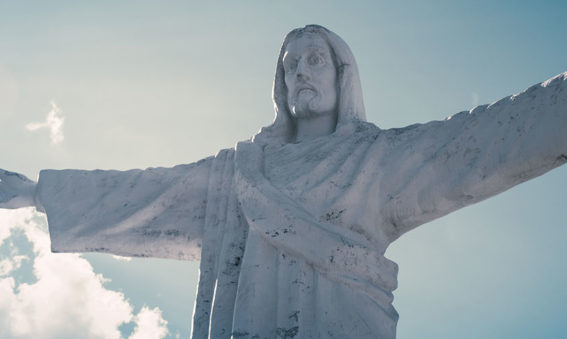Without a historical understanding of Passover, you can regard the crucifixion of Jesus Christ as a dramatic event on a random day. Just a day in history when the people and leaders decided to crucify Him who was without sin. Jesus, being the victim of human misunderstanding. An event like this could easily have taken place a week later or earlier. But not on God’s Calendar! For precisely this reason the Old Testament Feast of Pesach – through both timing and rituals – is the ultimate and powerful proof that Jesus was the promised Messiah.
SIGN UP FOR THE NEWSLETTER
Wake Up! is on Amazon.com (or local bookshop)
For the German Edition go to
www.wakeupbuch.online
For the Dutch Edition go to
www.wakeup.nu
When Jesus came on earth, He didn’t fulfill some, but He fulfilled all prophecies in the Old Testament about the (first) coming of the Messiah. He provided irrefutable evidence that He was God’s anointed one. Now that we know, shouldn’t we ask ourselves what to do with the prophecies regarding the Second Coming?
The Feast of Unleavened Bread begins on the day after Passover and lasts for seven days. In the period before the Passover, every family will clean their home in accordance to the Biblical instruction they have received to remove all the sourdough from their homes.
To our surprise we found a book written by the late Johannes de Heer[1] during the Second World War, ‘God’s Plan for Salvation Established in Appointed Times in Leviticus 23.’ From his perspective as a Protestant writing at one of the darkest moments of our history, he already saw that the blueprint for God’s plan of salvation could be found in the sequence of the biblical feasts. Here we’d like to examine how the meanings contained in the Fall Feasts should be an urgent wake up call for today’s Church. What do these Fall feasts have to do with the End Times?
The biblical feasts, as they’re described in the book of Leviticus, were indeed originally prophetic in that God used them as a way to make His plan for salvation logical and understandable for humanity. However, the meanings of some feasts have become reality since Christ’s first coming, while others are still waiting to be fulfilled.
Mark the Fall Feasts 2017-2020 on your calendar!
After Pentecost there is a long dry summer, without any biblical feast. But in the autumn the first feast is the Feast of Trumpets. When the new moon becomes visible in Israel in September 2017 the feast will begin. At first glance it might seem that the Bible gives little explanation regarding this day of the awakening trumpet call, and perhaps it may always remain a mysterious day to the world around us. But what a day it will be when the heavenly Bridegroom comes for His Bride on this specific day on the calendar.
Some believe that God has replaced Passover with the observance of Easter as a celebration of Christ’s resurrection. But is that correct?
Easter and Passover were celebrated on the same calendar day until the 4th century A.D. Although the early church focused on the suffering, death and resurrection of Jesus, salvation through Christ was always associated with the deliverance of the Jewish people out of Egypt. However, this aspect changed over time.








